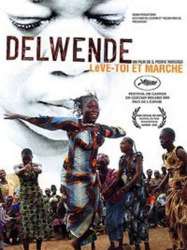Films from the country "burkina faso", sorted by revenue

Grandmother (1989)
, 1h30Directed by Idrissa Ouédraogo
Origin Burkina faso
Genres Drama
Themes Films set in Africa
The film is set in a small African village. Bila (Noufou Ouédraogo) is a ten-year-old boy who makes friends with an old woman called Sana (Fatimata Sanga), who has been accused of witchcraft by her village, and has become a social outcast. Only Bila is respectful of her, and calls her "Yaaba" (Grandmother). When Bila's cousin, Nopoko (Roukietou Barry), falls ill, a medicine man insists that Sana has stolen the girl's soul. Sana undergoes a long and grueling journey to find a medicine to save Nopoko's life. Sana manages to save Nopoko's life, but is still treated as a witch. After Sana dies, the real reason why she is hated in the village is uncovered, but her love and wisdom she invested in Bila and Nopoko lives on.

Rabi (1992)
Directed by Gaston Kaboré
Origin Burkina faso
Genres Drama
Themes Films about children
Rabi a dix ans. Il aide son père dans son travail de forgeron. Un jour, celui-ci trouve une tortue sur le marché et l'offre à l'enfant. Rabi est si émerveillé par l'animal qu'il oublie d'actionner le soufflet de la forge. Le père, fâché, se débarrasse de la tortue. Rabi en est meurtri au point qu'un vieil homme du village lui donne une nouvelle tortue, laquelle va accompagner le garçon dans sa découverte de la vie et du respect de la nature.

Drexciya (2013)
, 28minutesOrigin Burkina faso
Actors Alexander Beyer
Thomas is a smuggler, shipping European refugees who hope to find a better life in Africa. One day his boat sinks and he is washed up on the African coast as the only survivor. He then makes his way to the nearest city - Drexciya.

Les Fespakistes (2001)
, 52minutesOrigin Burkina faso
Genres Documentary
Themes Films about films
Actors Gaston Kaboré, Ousmane Sembène, Dani Kouyaté, Mohamed Camara, Kitia Touré
Cinéastes, acteurs et autres protagonistes du FESPACO 2001 (Festival du Film Panafricain de Ouagadougou, Burkina Faso) s’interrogent sur l’avenir du cinéma africain et sur la difficulté de faire des films dans des pays qui n’ont bien souvent aucune institution consacrée au cinéma. Chacun essaye de chercher quel serait l’idéal de ce cinéma en devenir. Ce film est un essai, un état des lieux de la production cinématographique en Afrique en ce début de millénaire. Il s’agit d’un manifeste, d’un constat terrible, sans appel. En offrant la parole aux cinéastes africains, tels Gaston Kaboré, Sembène Ousmane, Dani Kouyaté, Mohamed Camara, Kitia Touré, etc., le film initie les spectateurs à une découverte de l’Afrique trop souvent cachée derrière le voile pudique et pur de la coopération économique et artistique.

La Ruse du lièvre (1994)
, 9minutesOrigin Burkina faso
Genres Animation
Un baobab ancestral raconte à deux enfants l’histoire du lièvre qui voulait devenir plus grand et plus fort que lui.

L'Île (2003)
, 3minutesOrigin Burkina faso
Genres Animation
Sur une île perdue dans l’immensité des Mers du Sud, deux amis mènent une vie tranquille, jusqu’à ce que…

Coeur de lion (2008)
, 1h31Origin Burkina faso
A lion causes ravages among the livestock. Several people disappear. Seeing the village chief is doing nothing, a young shepherd, Samba, decides to follow the lion’s tracks on his own. But not just anyone can hunt a lion and Samba is trapped by it. Despite his courage, the lion almost kills him. Luckily, a young hunter appears and kills the animal. Samba’s life is saved, but not his honor. He wants to take the lion’s tale back to the village, but Tanko won’t let him. The trophy is his. The lion is dead, yet people keep on disappearing.

The Night of Truth (2004)
, 1h40Directed by Fanta Régina Nacro
Origin Burkina faso
Genres Drama, Romance
Themes Films set in Africa
Actors Naky Sy Savané
Quelque part en Afrique. Après dix ans d'une guerre civile sanglante, les Nayaks, ethnie du Président, et les Bonandés, rebelles rassemblés autour du Colonel Théo, sont sur le point de célébrer les accords de paix en organisant une fête de la réconciliation. Mais le souvenir encore vivace des atrocités commises de part et d'autre assombrit peu à peu les festivités.

Anger of the Gods (2003)
, 1h35Directed by Idrissa Ouédraogo
Origin Burkina faso
Genres Drama
After ruling for 20 years, the King is on his deathbed. He summons his son, Tanga, and his brother, Halyare, to avoid a bloody battle for the succession. However, despite his last will, the King cannot prevent Tanga from taking power and instating a reign of terror. A few years later, the tyrant learns that Salam is not his son, contrary to what he believed up until then. A personal battle begins between the two men. One of them must die. A Greek tragedy against an African background.

Buud Yam (1997)
, 1h37Directed by Gaston Kaboré
Origin Burkina faso
Genres Drama, Historical
The film draws on the African oral tradition. Set in a nineteenth century village, it follows a group of characters from Kaboré's debut film Wend Kuuni. Wend Kuuni (Serge Yanogo) is a young man who is suspected of being responsible, through the use of sorcery, for his adopted sister's ill health. To help his sister, and clear his name, he tries to find a healer who uses the legendary "lion's herbs". He also searches for his own roots.
 Connection
Connection


